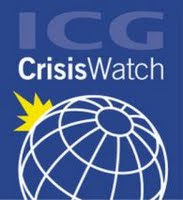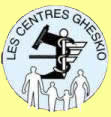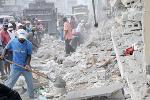Invitation: Haitian Recycling Conference (July 23-24, 2011)
 Below is an invitation to a recycling conference that will be held at Wahoo Bay Beach Resort outside of Port au Prince July 23-24, 2011. If you have been to Port au Prince, then you have seen the plastic bottles clogging up drainage canals throughout the city. This is one of many vulnerabilities during the rainy season. Nationwide recycling would create jobs and clean up Haiti's ever growing cities. To learn more about Ramase Lajan (Gather the Money) visit Haiti Recycling website. Recycling plastic, rubble, and trash could become important components of Haiti’s reconstruction.
Below is an invitation to a recycling conference that will be held at Wahoo Bay Beach Resort outside of Port au Prince July 23-24, 2011. If you have been to Port au Prince, then you have seen the plastic bottles clogging up drainage canals throughout the city. This is one of many vulnerabilities during the rainy season. Nationwide recycling would create jobs and clean up Haiti's ever growing cities. To learn more about Ramase Lajan (Gather the Money) visit Haiti Recycling website. Recycling plastic, rubble, and trash could become important components of Haiti’s reconstruction.








